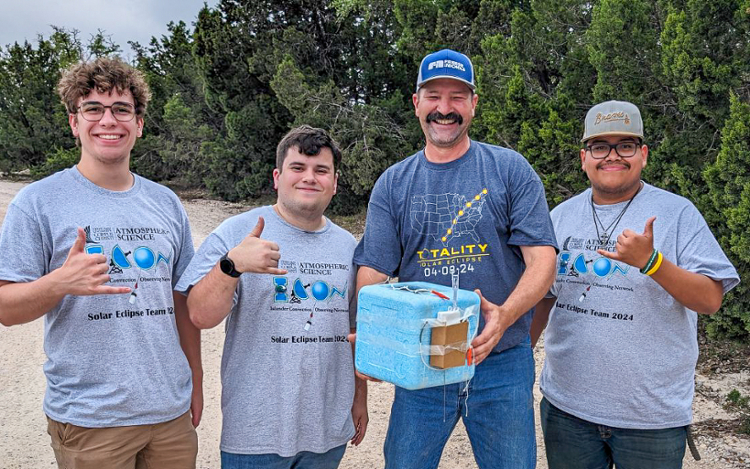High-Tech Research Vessel Will Launch New Opportunities for Island University Researchers, Students
CORPUS CHRISTI, Texas – A $100 million, state-of-the-art research ship will give Texas A&M University-Corpus Christi scientists and their students the shared ability to conduct a wide range of research projects on the seagoing laboratory.
The 199-foot Regional Class Research Vessel will be constructed, tested, and delivered to a consortium of universities and institutes in 2023. Funded by the National Science Foundation, the ship will be capable of research expeditions lasting 21 days over 5,400 nautical miles, with a crew of 13 and space for six scientists and their equipment.
“We have joined 14 other high-powered oceanographic institutions across the U.S. southern tier and Caribbean to form the Gulf-Caribbean Oceanographic Consortium,” said Dr. Richard Coffin, chair of the Department of Physical & Environmental Sciences in the College of Science and Engineering at Texas A&M-Corpus Christi.
Island University researchers who will have access to the research vessel include Drs. Hussain Abdullah, Mohamed Ahmed, Darek Bogucki, Coffin, David Felix, Simon Geist, Xinping Hu, Chuntao Liu, Paul Montagna, Dorina Murgulet, Lindsay Prothro, Brandi Reese, Paula Rose and Lin Zhang, among others.
They will be able to conduct research on a wide range of topics, such as sediment, atmosphere and water column studies; geochemical, geologic and geophysical projects; remote sensing research; and microbial studies.
Coffin said students at the Island University are eager for opportunities to experience a research expedition at sea.
“I look at all the hungry students that we have in our classes who would love to be a part of something like this,” Coffin said. “When this new research vessel is ready, there will be several times each year that we will be able to get students out on this kind of thing. It also sets a new stage for our graduate students. It’s going to be able to get them out on their dissertations and master’s theses to conduct their research activities.”
The ship will give researchers new opportunities to conduct research projects at sea that currently are limited by the number of ships available and the competition for time aboard research vessels. While various smaller and less advanced research vessels are currently being used, only two other ships of this kind have been built, and neither is operating in the Gulf of Mexico.
“We don’t have these platforms here,” Coffin said. “There are not as many vessels available for this kind of research.”
Hu said the ship will provide significant opportunities for researchers to be at sea for longer periods of time, which will expand their capabilities. The ship also will allow researchers from different disciplines to conduct research at the same time or to collaborate across disciplines on more diverse projects.
“Everybody can use this type of platform,” Hu said.
Other consortium members include:
- Centro de Investigación Científica y de Educación Superior de Ensenada, Mexico.
- Dauphin Island Sea Lab
- Florida State University
- Harbor Branch Oceanographic Institute of Florida Atlantic University
- Lamar University
- Louisiana State University
- Texas A&M University
- Texas A&M University at Galveston
- Tulane University
- University of Georgia
- University of Miami
- University of Puerto Rico
- University of South Florida
- University of Texas Marine Science Institute
- University of the Virgin Islands
Scheduling of time aboard the ship will be done by the University-National Oceanographic Laboratory System.
Homeports will be in Mississippi and Louisiana to support scientific research and vessel maintenance, respectively. The key base for embarkation of research expeditions will be the Port of Gulfport in Gulfport, Mississippi.













